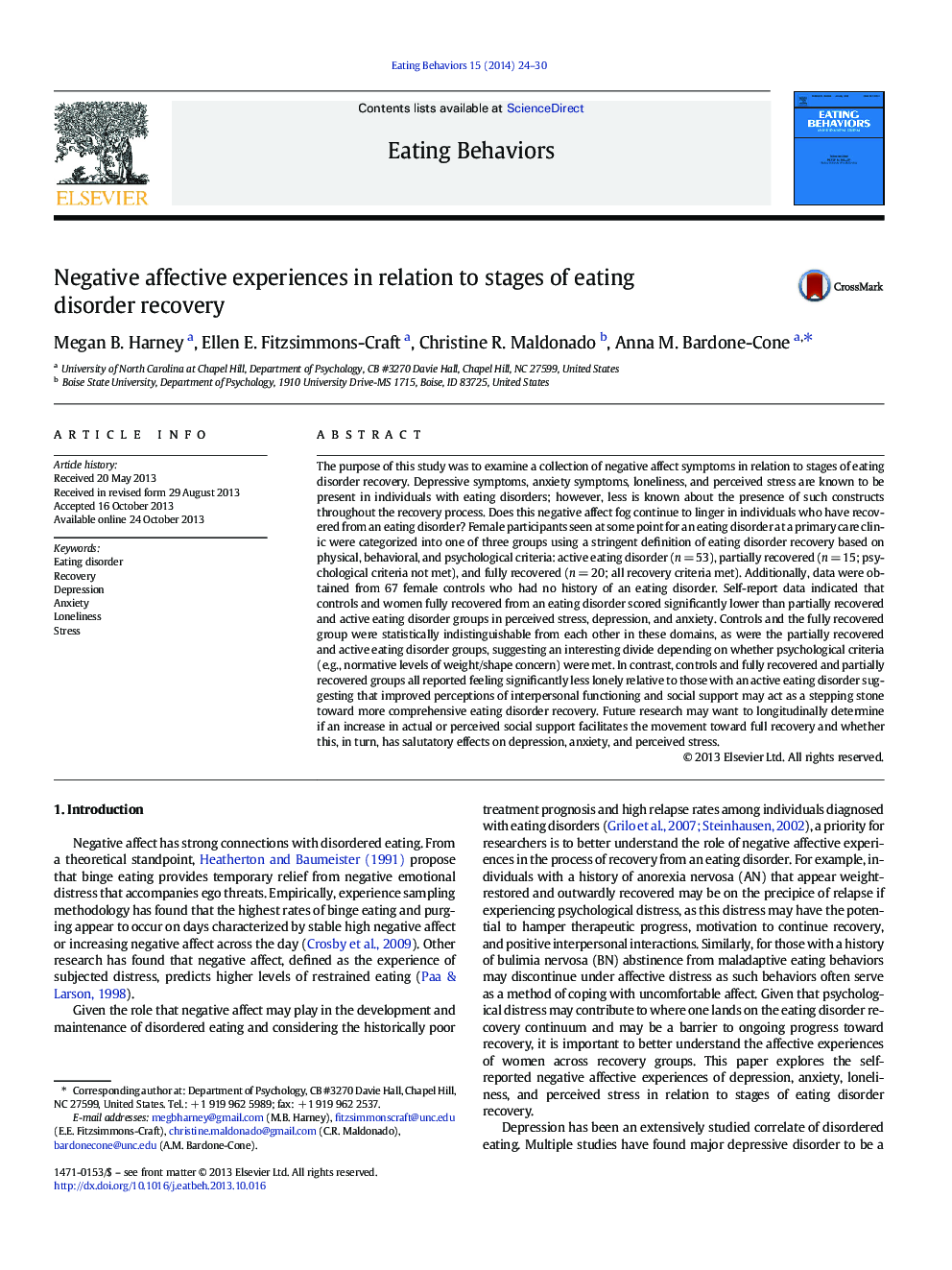| Article ID | Journal | Published Year | Pages | File Type |
|---|---|---|---|---|
| 906418 | Eating Behaviors | 2014 | 7 Pages |
•We examined depression, anxiety, loneliness, and perceived stress in eating disorders.•Those fully recovered endorsed levels of negative affect similar to controls.•Those partially recovered endorsed lower levels of loneliness than expected.•Those in the active group reported greater negative affect compared to fully recovered.
The purpose of this study was to examine a collection of negative affect symptoms in relation to stages of eating disorder recovery. Depressive symptoms, anxiety symptoms, loneliness, and perceived stress are known to be present in individuals with eating disorders; however, less is known about the presence of such constructs throughout the recovery process. Does this negative affect fog continue to linger in individuals who have recovered from an eating disorder? Female participants seen at some point for an eating disorder at a primary care clinic were categorized into one of three groups using a stringent definition of eating disorder recovery based on physical, behavioral, and psychological criteria: active eating disorder (n = 53), partially recovered (n = 15; psychological criteria not met), and fully recovered (n = 20; all recovery criteria met). Additionally, data were obtained from 67 female controls who had no history of an eating disorder. Self-report data indicated that controls and women fully recovered from an eating disorder scored significantly lower than partially recovered and active eating disorder groups in perceived stress, depression, and anxiety. Controls and the fully recovered group were statistically indistinguishable from each other in these domains, as were the partially recovered and active eating disorder groups, suggesting an interesting divide depending on whether psychological criteria (e.g., normative levels of weight/shape concern) were met. In contrast, controls and fully recovered and partially recovered groups all reported feeling significantly less lonely relative to those with an active eating disorder suggesting that improved perceptions of interpersonal functioning and social support may act as a stepping stone toward more comprehensive eating disorder recovery. Future research may want to longitudinally determine if an increase in actual or perceived social support facilitates the movement toward full recovery and whether this, in turn, has salutatory effects on depression, anxiety, and perceived stress.
